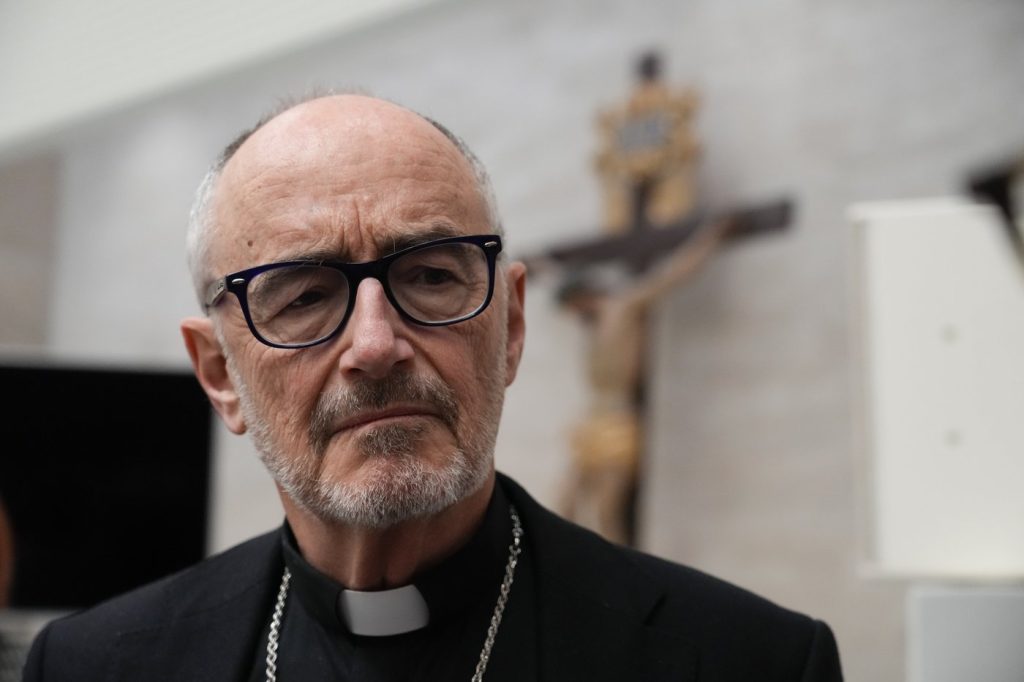VATICAN CITY (AP) – Cardinal Michael Czerny, Pope Francis' point-man on migration and development, has called on the Trump administration to uphold Christian principles related to caring for others, emphasizing that migrants are currently being “terrorized” by the government's stringent immigration policies. He expressed concern that essential church-led aid programs are at risk due to proposed cuts to USAID (United States Agency for International Development).
Czerny, a Czech-born Canadian Jesuit and a cardinal closely associated with Francis' papacy, oversees the Vatican office responsible for migrants, the environment, and the charity Caritas Internationalis. In an interview with The Associated Press, he noted that while incoming administrations have the authority to reassess their foreign aid budgets and reform agencies like USAID, dismantling an agency after it has made commitments is unacceptable.
“There are programs underway and expectations and we might even say commitments, and to break commitments is a serious thing,” Czerny stated. He highlighted the need for advanced warning when making substantial changes that could disrupt ongoing projects, as it is often challenging to find alternative funding sources or solutions to address pressing problems.
In 2023, USAID managed over $40 billion in combined appropriations as the U.S. government's primary international humanitarian and development arm. However, under the Trump administration, a freeze on funding has severely disrupted USAID's operations globally, although a federal judge recently halted plans to remove thousands of agency staff from their jobs.
Among the major beneficiaries of USAID is Catholic Relief Services, the U.S. Catholic Church's aid agency, which has raised alarms over budget cuts. Czerny also mentioned that other church-related programs, particularly those coordinated by Caritas at various levels, are directly and indirectly affected by these funding reductions.
Czerny acknowledged that the USAID budget, while substantial, represents less than one percent of the U.S. gross domestic product and is a fraction of the biblical tithe of ten percent of one’s income. He referenced Pope Francis' concerns regarding the conditionalities attached to Western aid to poorer nations, which may conflict with Catholic doctrine, such as programs promoting gender ideology. The Trump administration has aimed at eliminating these “woke” programs in its USAID cuts.
"If the government believes its programs have been distorted by ideology, it should reform the programs," Czerny remarked. "Many people would argue that shutting them down is not the ideal way to achieve reform."
The Vatican and the U.S. Catholic hierarchy are also troubled by the Trump administration's aggressive measures against undocumented migrants. White House Press Secretary Karoline Leavitt reported last week that over 8,000 individuals have been arrested during immigration enforcement actions since President Trump’s inauguration on January 20, with many detained in federal prisons and some held at Guantanamo Bay.
Czerny, whose family immigrated as refugees to Canada after World War II, condemned the harsh crackdown, stating, “A crackdown is a terrible way to administer affairs and much less to administer justice.” He expressed sorrow for those harmed and “terrorized” by these measures, urging people of goodwill to help protect vulnerable individuals.
The U.S. Conference of Catholic Bishops issued a notably critical statement following President Trump's initial executive orders, stating that these actions concerning immigrants, foreign aid, the death penalty, and environmental issues are “deeply troubling” and could result in negative consequences for the most vulnerable populations.
Despite the Catholic Church hierarchy often prioritizing issues like abortion, Czerny highlighted the need for compassion toward migrants, aligning with Francis' biblical call to “welcome the stranger.” He urged that countries have an obligation to protect and support those fleeing conflict, poverty, and environmental disasters, with the exception of a few nations like Lebanon that are overwhelmed by the influx.











